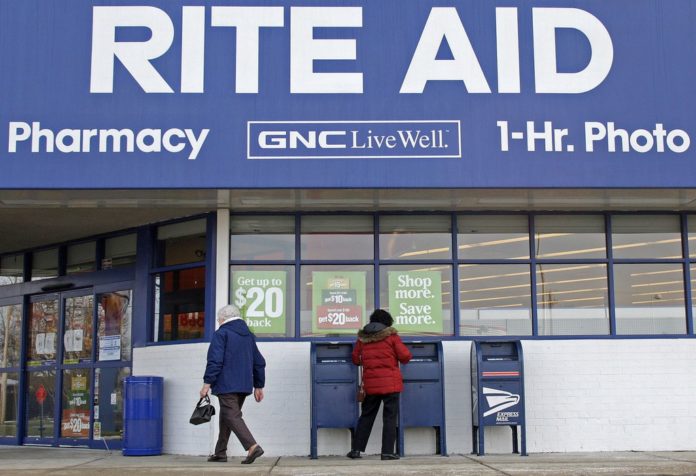
WOONSOCKET – CVS Caremark Corp. may try to buy Rite Aid Corp. to get a leg up on rival drugstore company Walgreen Co. following the latter’s purchase of New York chain Duane Reade, analysts said.
Deerfield, Ill.-based Walgreen revealed Wednesday it will buy Duane Reade for $1.1 billion to take on CVS and Rite Aid in the New York metropolitan market. Buying a competing chain – along with its prescription files – offers an easier way for drugstore companies to expand their footprints, as opposed to starting from scratch with new stores.
“It would take many years of organic growth to reach the store count that this acquisition brings us,” Walgreen CEO Greg Wasson told Reuters.
The addition of Duane Reade will raise Walgreen’s share of the U.S. drugstore market slightly to 27.7 percent, ahead of CVS at 26 percent and Rite Aid at 12.5 percent, according to estimates by market research firm IBISWorld Inc. cited by Reuters.
The drugstore industry is likely to see further consolidation as the economy recovers, Adam Fein, president of the Philadelphia-based health care consultancy Pembroke Consulting, told Dow Jones Newswires. He predicted either CVS or Walgreen would make another major purchase in the next 12 to 18 months.
Although CVS CEO Thomas M. Ryan said last month the company was not planning any major acquisitions, he may come under pressure to buy another drugstore rival to boost earnings, Toon Van Beeck, an analyst with IBISWorld, told Reuters.
Camp Hill, Pa.-based Rite Aid has lost money for the last 10 quarters as the chain’s 4,800 stores suffered lower sales and the company struggled with a heavy debt burden. Rite Aid bought 1,800 Brooks and Eckerd drugstores, including 47 in Rhode Island, in 2007.
Rite Aid’s debt-laden balance sheet makes it more likely the company would merge with a larger rival such as CVS than make any acquisition on its own, Doug Conn, managing director and retail credit specialist at Hexagon Securities in New York, told Bloomberg News.
Van Beeck said Rite Aid is a prime target because it “has market share and its shares are so cheap.” Rite Aid stock rose 13.7 percent to $1.58 at 11:49 a.m. Thursday in New York Stock Exchange trading.
CVS, Walgreen and Wal-Mart Stores Inc. may each take a look at acquiring at least some Rite Aid stores. If one of them did make a purchase, the Federal Trade Commission might force the buyer to sell some of its other stores because of competition concerns, Neil Currie, an analyst with UBS Securities LLC, said Thursday in a research note, Drug Store News reported.
“We believe potential suitors for stores within the Rite Aid portfolio could include CVS, especially in the Pacific Northwest and Mountain regions; Walgreen in certain urban markets; and Wal-Mart, given our view that Wal-Mart has significant potential to grow in urban markets, is looking more closely at the economics of a smaller food/drug footprint and appears to have wider health care ambitions,” Currie wrote.
Currie also predicted that buying Rite Aid could cost as much as $7.7 billion based on the value of other recent industry acquisitions, including CVS Caremark’s $2.5 billion purchase of the West Coast chain Longs in 2008.
Meanwhile, Anthony Sabino, a law and business professor at St. John’s University in Queens, New York, told MarketWatch that while regulators were unlikely to block the Walgreen-Duane Reade tie-up, “it would limit the retail drugstore sector to essentially CVS and Walgreen’s as the two national giants battled it out coast to coast.”
In one last twist, the Financial Times’ influential Lex column floated the possibility that CVS could make its own bid for Duane Reade “to try heading off Walgreen’s expansion into the Northeast.”












